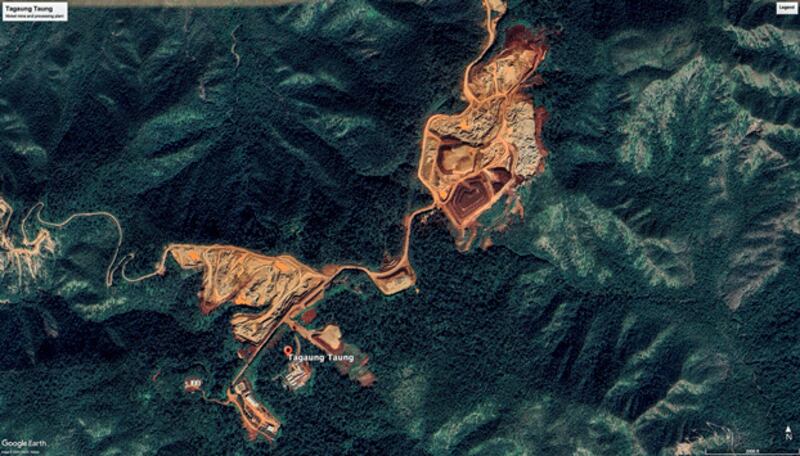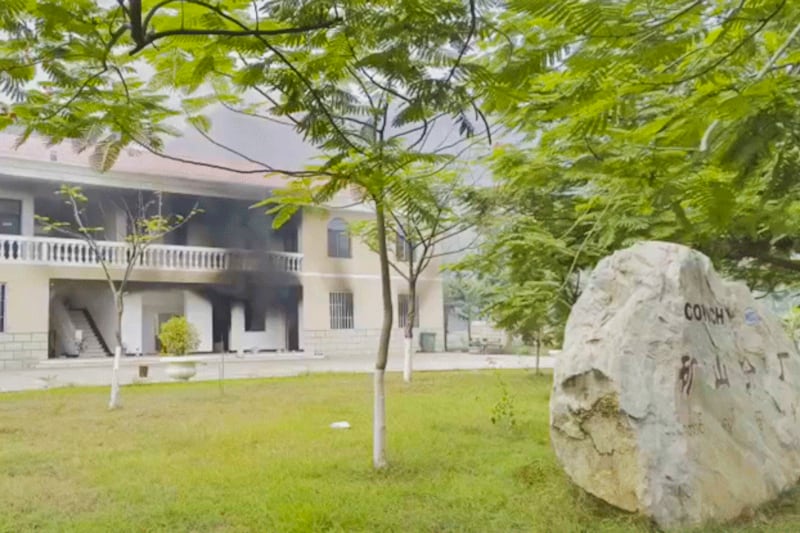An anti-junta militia seized two Chinese-invested joint ventures in two regions of Myanmar amid fighting between junta soldiers and resistance forces, throwing the future of the operations into uncertainty.
In July, two separate People’s Defense Forces took control of the Alpha Cement factory in Mandalay region and the Tagaung Taung nickel mine in Sagaing region.
Junta troops attacked the cement factory, about 30 kilometers (19 miles) north of the junta's Central Command, and tried to burn down buildings inside the compound while fleeing a successful assault by the Mandalay People's Defense Force militia, Myanmar Now reported.
The military has conducted daily airstrikes on the cement plant, owned by Myanmar’s Myint Investment Group and and China’s Anhui Conch Cement Co., since militia forces capturing it, the report said.
RELATED STORIES
[ Myanmar rebel group vows to protect China’s interestsOpens in new window ]
[ Rebels vow to protect Chinese investment in MyanmarOpens in new window ]
[ As China expands investment in Myanmar, experts warn of public backlashOpens in new window ]
A People's Defense Force in northwestern Myanmar's Sagaing region took over a major Chinese-backed nickel-production plant from junta forces in July without a fight on the border between Mandalay region's Thabeikkyin township and Sagaing region's Tigyaing township, Myanmar Now said in another report.
About 60 junta soldiers and police abandoned 64 weapons and ammunition at the Tagaung Taung mine compound and left, Nay Phone Latt, spokesman of the Prime Minister’s Office of the shadow National Unity Government, or NUG, told Radio Free Asia.
The NUG is now responsible for the safety of the factory and its employees, he said.
The seizure of the cement factory and nickel mine comes as the junta continues to lose ground to People's Defense Forces, or PDFs, loyal to the NUG and allied ethnic armed groups — almost four years into a civil war that shows no sign of abating.

The incidents also indicate that the junta cannot fully safeguard Chinese-invested projects in Myanmar and that increased discussions between Beijing and the NUG may be forthcoming, said political analyst Than Soe Naing.
“China will need to decide whether to rely on the military council or the PDFs and ethnic armed forces to protect its interests in Myanmar,” he said.
The NUG has not issued instructions for the two factories to cease operations, and they are able to continue normal operations, despite the fighting, said Nay Phone Latt.
The Chinese Embassy in Myanmar said it may investigate the situation of the factories seized by the PDFs, but it did not respond to RFA’s request for comment.
Chinese Foreign Ministry spokesperson Mao Ning told a regular press conference in Beijing on July 25 that conflicts in Myanmar should not interfere with domestic Chinese projects, businesses or the security of Chinese citizens.

The NUG will not recognize businesses established under contracts signed with the State Administration Council, the formal name of the ruling junta, but will accept those that operated under contracts signed by previous governments, Nay Phone Latt said.
International companies operating in Myanmar must pay taxes to the NUG instead of to the military council, he added.
The NUG said its policy is to protect all legal foreign investments in Myanmar, not just those from China.
Junta spokesman Maj. Gen. Zaw Min Tun and spokesmen for Mandalay and Sagaing regions did not respond to requests for comment.
Translated by Kalyar Lwin by RFA Burmese. Edited by Roseanne Gerin and Matt Reed.
